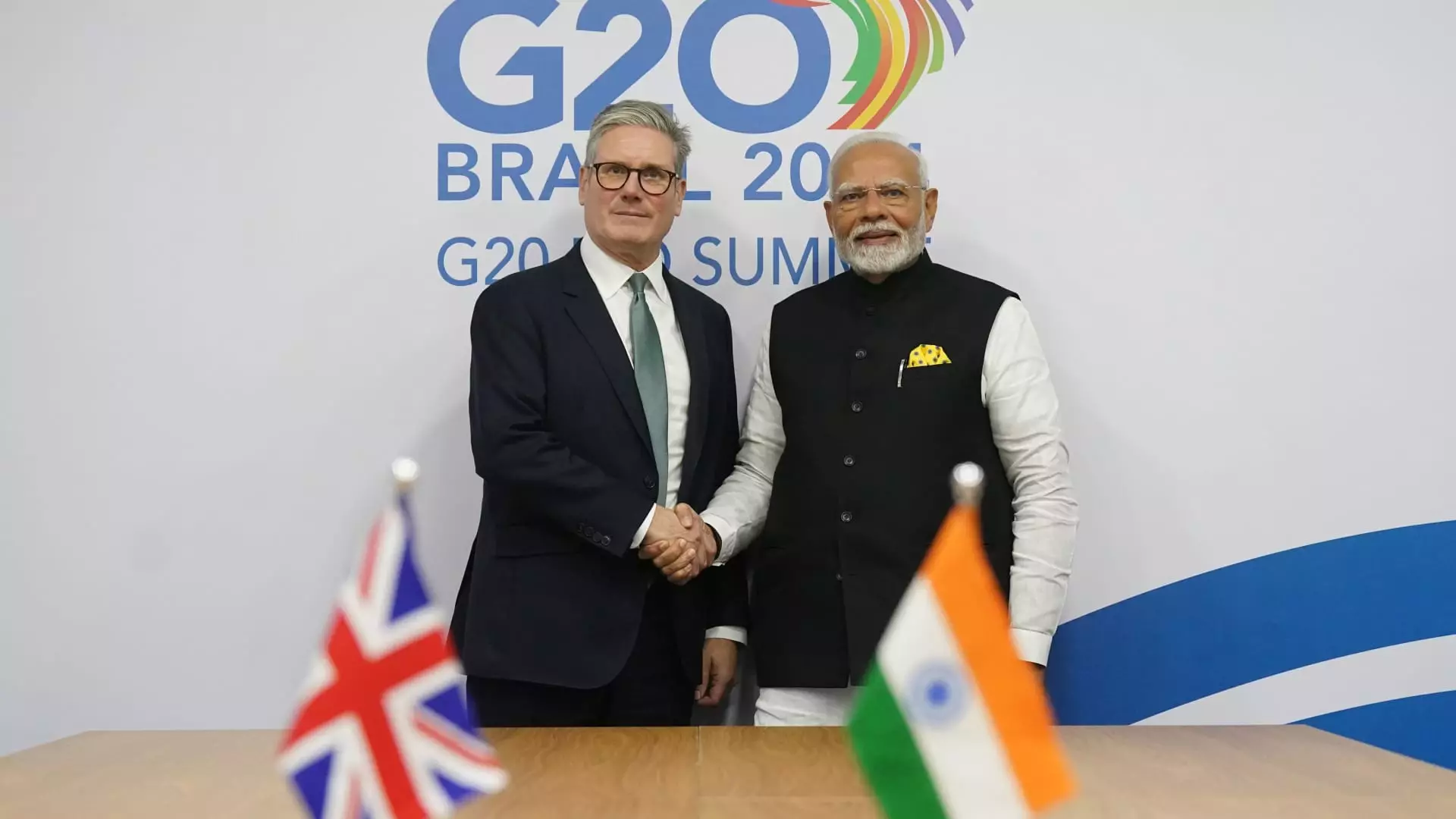In the coming year, the United States is set to drastically reduce its influence within the G20, signaling a troubling shift from multilateral engagement toward unilateralism. This move, driven by the Trump administration’s skepticism of international institutions, risks devaluing a forum designed for global economic stability. As the U.S. plans to assume the G20 presidency amidst a backdrop of diminished participation, it reveals a prioritization of short-term national interests over long-term global cooperation—a stance that could have far-reaching repercussions. This deliberate sidelining of global dialogue diminishes the very architecture that has historically fostered dialogue amidst economic upheaval and geopolitical tensions.
The decision to streamline the G20’s core agenda, focusing narrowly on leaders’ and financial tracks while dropping working groups on vital issues like climate, health, and energy, illustrates a worrying neglect of interconnected global challenges. This reductionist approach risks ignoring the systemic nature of today’s crises that require comprehensive, coordinated responses. It reflects a narrow-minded view that financial stability can be achieved in isolation, neglecting the broader social, environmental, and geopolitical factors that influence economic health.
U.S. Leadership and the Erosion of Global Trust
The retreat also signals a profound disregard for the foundational principles of international cooperation that the G20 was built upon. The U.S., as a founding member, played a pivotal role in shaping this alliance. To now withdraw or weaken its involvement—especially during a period marked by complex crises such as climate change, debt distress in developing nations, and geopolitical conflicts—erodes American credibility and diminishes the effectiveness of the forum. It sends a perilous signal to allies and rivals alike: that multilateral agreements are secondary to national interests.
Moreover, the Trump administration’s “America First” approach, which has led to trade wars, cuts to foreign development aid, and a general skepticism towards multilateral institutions, undercuts the very essence of global economic stability. This ideological stance risks creating a fragmented international order where cooperation is reserved only for national gain, prioritizing bilateral or unilateral actions that could escalate tensions and destabilize markets.
The Implications for Developing Nations and Global Stability
The consequences of this retreat extend beyond mere diplomatic shuffling. Developing countries, which depend heavily on international institutions and forums like the G20 for economic support and debt relief, face new obstacles. Their capacity to advocate for sustainable development and climate resilience could be severely limited without a robust, engaged G20. The sidelining of critical issues, such as climate finance, risks undermining decades of progress and potentially exacerbates global inequality.
Activists and civil society organizations are right to voice concern. Their fears that the U.S. move could unravel progress made in inclusive economic growth and sustainable development are well-founded. As the priorities narrow, the cohesive push for tackling interconnected challenges—such as debt sustainability, climate change, and health crises—may slip away, leaving the world more vulnerable to shocks and crises.
The decision to downsize and refocus the G20 process also reveals a deeper ideological divide within the global community about how to address complex issues effectively. The push within the U.S. to concentrate on core financial stability and development missions is understandable from a pragmatic standpoint, but it risks ignoring the multifaceted nature of contemporary crises. Ignoring the broad scope of issues that the G20 traditionally encompasses undermines the very purpose of having such an inclusive forum.
The Power Dynamics and Future Prospects
This reductionist approach presents an opportunity for other members, notably emerging economies like Brazil and South Africa, to assume greater leadership in shaping the G20’s future. However, this shift also raises critical questions: Does the departure from comprehensive dialogue weaken the G20’s capacity to serve as a stabilizing force? Or does it reflect a necessary recalibration in a world increasingly marked by rivalry and mistrust?
While some analysts argue that U.S. disengagement could open space for other nations to demonstrate leadership, history suggests that the absence of American influence often sows division rather than progress. The U.S., despite its flaws, has historically been a vital anchor in global economic governance. Its withdrawal risks fragmenting the delicate balance of influence and diminishes the capacity of the G20 to serve as an effective platform for debate and resolution.
In the long term, the U.S.’s reluctance to lead in multilateral spaces like the G20 may signal a broader retreat from global responsibility—an abdication that could embolden authoritarian regimes and undermine the liberal international order. If the U.S. shirks its duties, the world risks sliding into a patchwork of competing spheres of influence, with little regard for shared prosperity or sustainable development. This transition, unless carefully managed with genuine multilateral cooperation, will only deepen global instability and undermine the very democratic values that underpin a free, open society.

Leave a Reply